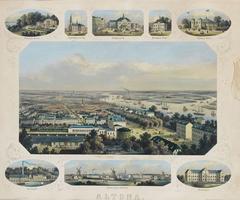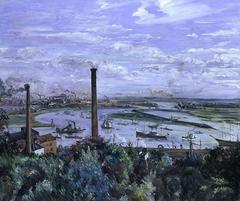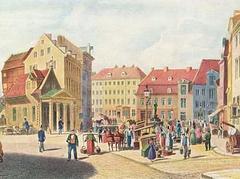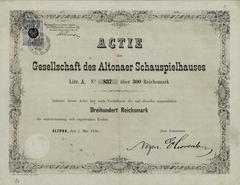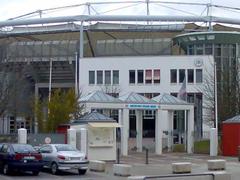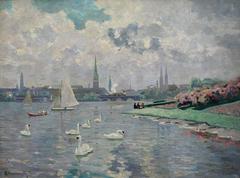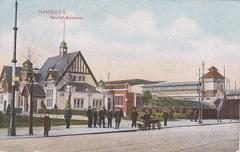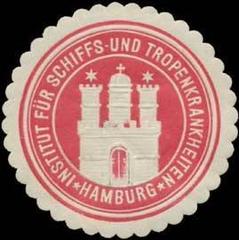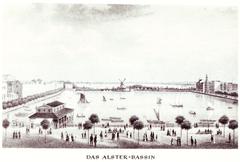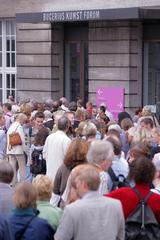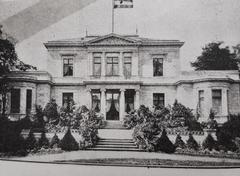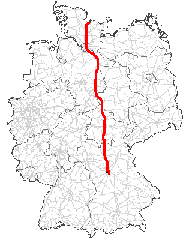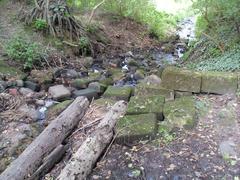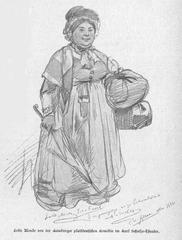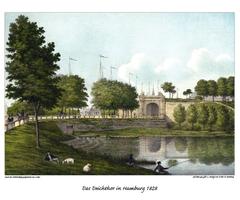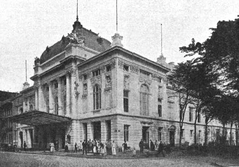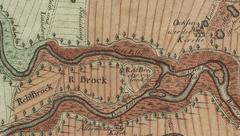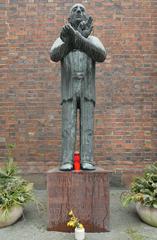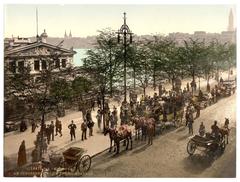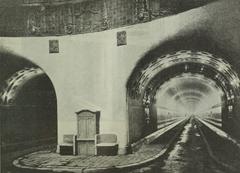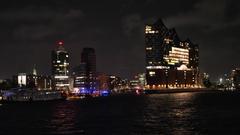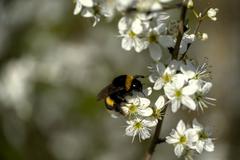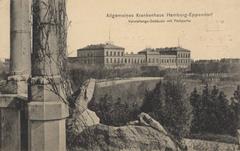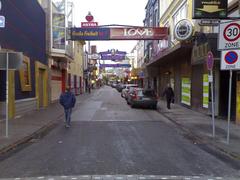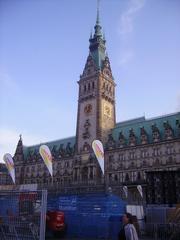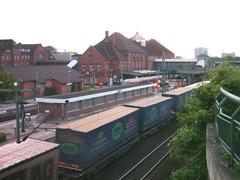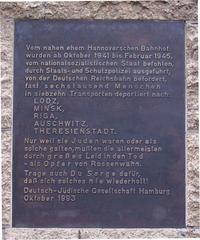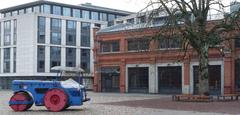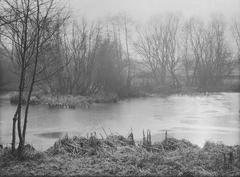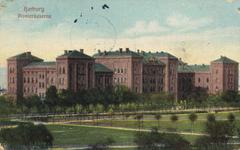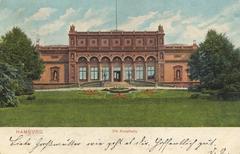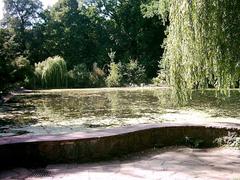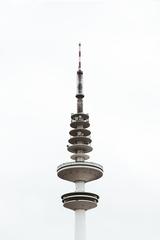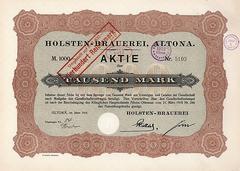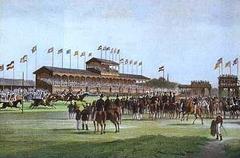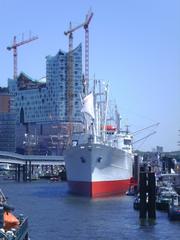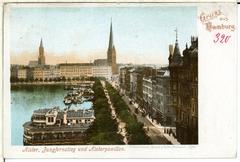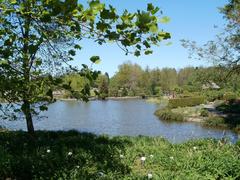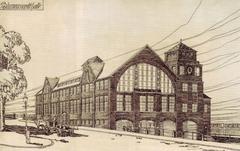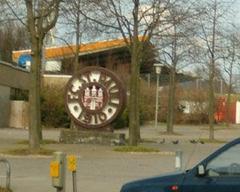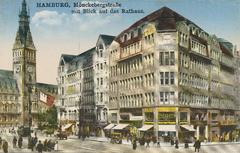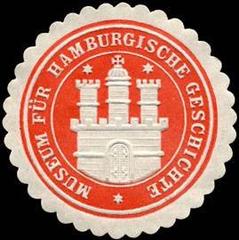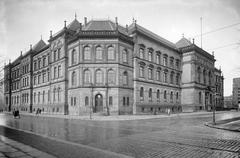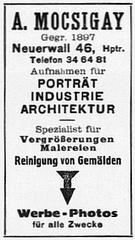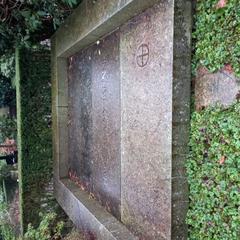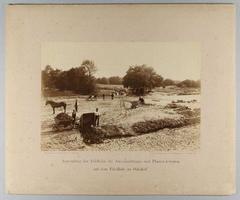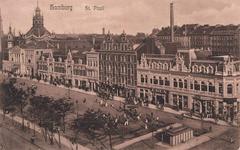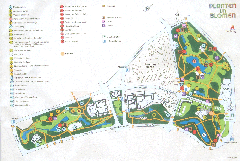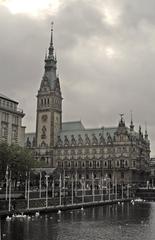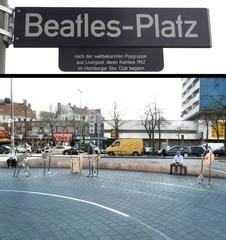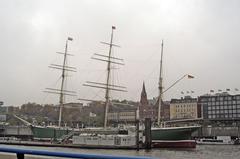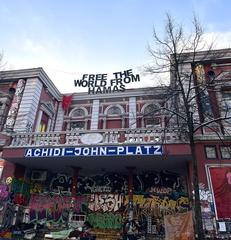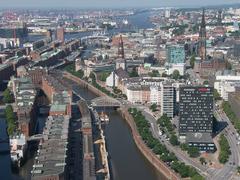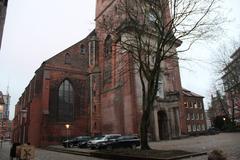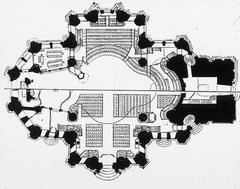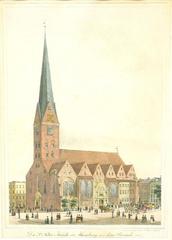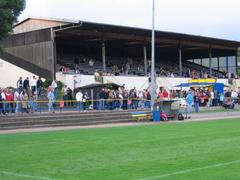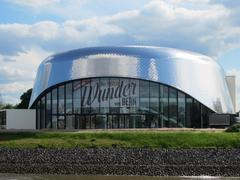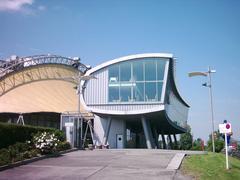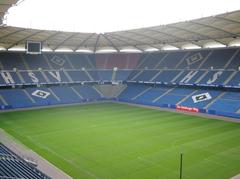Visiting Kiwittsmoor, Hamburg: Complete Guide to Tickets, Hours, and Attractions
Date: 04/07/2025
Introduction to Kiwittsmoor Hamburg: History and Significance
Kiwittsmoor, situated in Hamburg’s northern Langenhorn district, is an unspoiled oasis blending natural landscapes, urban amenities, and historical depth. Named after the lapwing (“Kiwitt” in Low German), this area is a testament to Hamburg’s commitment to ecological preservation and sustainable urban living. Once a rural buffer bordering Schleswig-Holstein, Kiwittsmoor has evolved through post-war development into a vibrant district with abundant green corridors, modern housing, and a welcoming community atmosphere. Today, it stands as both a recreational retreat and a living example of Hamburg’s efforts to balance urban growth with environmental stewardship (StWHH Kiwittsmoor).
This guide provides an in-depth overview of Kiwittsmoor’s top attractions—including Kiwittsmoor Park, the adjacent Wittmoor nature reserve, and the beloved Naturbad Kiwittsmoor—along with practical information on tickets, opening hours, accessibility, and transportation. Whether you’re a nature enthusiast, a history buff, or simply seeking a peaceful escape, Kiwittsmoor offers something for everyone (naturbadkiwi.de, hamburg.com).
Contents Overview
- Introduction
- Early Development & Geographic Context
- Historical Significance
- Nature & Conservation
- Social & Cultural Developments
- Memorial Sites
- Practical Visitor Information
- Hours, Tickets, Getting There, Accessibility, Events
- Modern Integration
- Visitor Experience
- Kiwittsmoor Park: Details & Tips
- Naturbad Kiwittsmoor: Facilities & Hours
- Sustainable Tourism & Environmental Impact
- FAQ
- Summary & Travel Advice
- Sources
Early Development and Geographic Context
Kiwittsmoor sits in Hamburg’s Langenhorn district, historically defined by its moorland ecosystems and proximity to the Schleswig-Holstein border. The area’s name—derived from the lapwing’s moor—reflects its original wetlands, much of which have been preserved or integrated into modern parklands. Urbanization in the 20th century transformed Kiwittsmoor into a residential and recreational hub while maintaining its natural appeal (StWHH Kiwittsmoor).
Historical Significance
Kiwittsmoor’s history is emblematic of Hamburg’s post-WWII expansion and commitment to sustainable development. Lacking medieval structures, its story is instead one of transformation: rural landscapes gave way to modern housing and green spaces, especially after World War II when the city prioritized creating livable, nature-adjacent districts (Onestepguide Hamburg Overview). The area’s prominent student housing, managed by Studierendenwerk Hamburg and renovated in 2017, underscores its role in fostering international education and community (StWHH Kiwittsmoor).
Nature and Conservation
Bordering the protected Wittmoor nature reserve, Kiwittsmoor is a haven for biodiversity. The Wittmoor area preserves rare moorland habitats and supports native wildlife, making it ideal for birdwatching and nature walks (Hamburg Ausflug Wittmoor). The district also features the Naturbad Kiwittsmoor, a unique natural swimming pool that exemplifies Hamburg’s focus on sustainable recreation. Open from May to September (10 AM–8 PM, weather dependent), admission is free and dogs are not permitted to maintain water quality (Hamburg Ausflug Naturbäder).
Social and Cultural Developments
Kiwittsmoor’s post-war urban planning placed a strong emphasis on community building. The student residence offers amenities such as a fitness room, bar, garden, and play facilities, fostering both international exchange and social cohesion (StWHH Kiwittsmoor). The area’s inclusive spirit is reflected in a vibrant arts scene, regular community events, and recreational opportunities for all ages (Hamburg Travel Culture).
Kiwittsmoor and the Wittmoor Camp Memorial
Kiwittsmoor is located near the former Wittmoor concentration camp site—a poignant memorial commemorating victims of the Nazi regime. The site is open year-round during daylight hours, with free entry. Occasional guided tours are offered by local historical societies and should be booked in advance (Hamburg Ausflug Wittmoor Memorial).
Practical Visitor Information
- Visiting Hours: Parks and memorials are open from dawn to dusk. Naturbad Kiwittsmoor operates seasonally (see below).
- Tickets: Free entry for most outdoor sites and memorials. Naturbad Kiwittsmoor has a small admission fee (see Naturbad section).
- Getting There: The U1 U-Bahn line stops at Kiwittsmoor station, providing direct access from Hamburg’s city center. The area is also well-served by buses and bicycle routes (StWHH Kiwittsmoor).
- Accessibility: Step-free access is available at the U-Bahn station and main park paths. Naturbad Kiwittsmoor is mostly accessible but some grassy/sandy areas may be challenging for wheelchairs or strollers.
- Events: Community events, open-air concerts, and educational workshops are hosted throughout the year. Check local listings and Studierendenwerk Hamburg for updates.
- Photo Opportunities: Moorland scenery, natural swimming pool, and vibrant gardens provide excellent backdrops.
Integration into Modern Hamburg
Kiwittsmoor exemplifies Hamburg’s sustainable urban development, balancing modern housing and student life with green spaces and historical awareness. Its connectivity and amenities make it attractive to students, families, and visitors seeking recreation or reflection (Onestepguide Hamburg Overview).
Visitor Experience and Historical Awareness
Visitors benefit from Kiwittsmoor’s tranquil ambiance, educational memorials, and accessible outdoor activities. The area’s blend of history, biodiversity, and community spirit makes it a rewarding stop on any Hamburg itinerary (StWHH Kiwittsmoor).
Exploring Kiwittsmoor Park: Visiting Hours, Attractions, and Tips
Park Overview
Kiwittsmoor Park is open daily from approximately 6:00 AM to 10:00 PM (hours may vary seasonally). Entry is free, and the park is ideal for walking, cycling, or simply relaxing in green surroundings.
Main Attractions
- Meadows and Woodlands: Enjoy expansive lawns, mature trees, and birdwatching.
- Historic Wetlands: Remnants of the original moorland with educational signage.
- Playgrounds & Sports Fields: Modern play equipment and reservable sports fields.
- Fitness Area: Outdoor calisthenics and exercise equipment.
- Accessibility: Step-free paths, accessible restrooms, and barrier-free U-Bahn access.
- Amenities: Benches, picnic tables, and nearby cafés and bakeries.
Getting There
- U-Bahn: Kiwittsmoor station (U1) provides direct, accessible access.
- Car & Bicycle: Limited parking is available; bicycle racks are at park entrances.
Seasonal Events
- Summer: Open-air concerts, family festivals, yoga classes.
- Winter: Sledding and scenic walks.
Visitor Tips
- Visit in spring or summer for the best weather.
- Bring binoculars for birdwatching and a picnic blanket.
- Dogs must be leashed except in designated areas.
- Barbecuing is allowed only in marked zones.
Naturbad Kiwittsmoor: Swimming, Facilities, and Opening Hours
Location and Access
- Address: Hohe Liedt 9, 22417 Hamburg.
- Getting There: 7-minute walk from Kiwittsmoor U-Bahn station (naturbadkiwi.de).
- Cycling: Ample bike parking.
- Car: Limited parking; arrive early on busy days.
History and Community
Naturbad Kiwittsmoor is operated by Hamburger Turnerbund von 1862 e.V. and is a cherished local spot, reflecting Hamburg’s tradition of natural bathing and community events (htb62.de).
Facilities
- Swimming: Two pools (main and children’s), water quality rated “excellent” for 2025 (ndr.de).
- Sunbathing: Spacious meadow with sunny and shaded areas.
- Family Activities: Playground, beach volleyball, minigolf, table tennis, and a designated grill area.
- Food: Kiosk with snacks and a beer garden atmosphere. Picnics allowed.
- Changing Rooms & Lockers: Limited lockers available (bring a padlock).
- Accessibility: Main paths are accessible; some grassy areas may be challenging.
- Pets: Not allowed to ensure hygiene.
Opening Times, Tickets & Capacity
- Season: Early May to mid-September (2025 season began July 3).
- Hours: 11:00–19:00 (subject to weather).
- Admission: Adults €4.00, Children €2.00, Reduced €3.00, Family ticket €10.00.
- Capacity: No reservations; entry is first-come, first-served.
Safety & Hygiene
- Lifeguards on duty during opening hours.
- Shower before swimming.
- Supervise children at all times.
Sustainable Tourism and Environmental Impact
Kiwittsmoor’s green spaces and biodiversity require careful visitor management. Stick to marked trails, reduce waste, and use public transport to minimize your environmental footprint (UNEP, Tourism Teacher, GreenTumble).
Frequently Asked Questions (FAQ)
Q: What are Naturbad Kiwittsmoor’s opening hours?
A: Typically 11:00–19:00, May–September (weather dependent).
Q: How do I get to Kiwittsmoor?
A: Take U-Bahn U1 to Kiwittsmoor station.
Q: Are there entrance fees?
A: Naturbad Kiwittsmoor has a small fee; Kiwittsmoor Park and the Wittmoor memorial are free.
Q: Is the area accessible for wheelchairs?
A: Yes, main paths and the U-Bahn station are accessible.
Q: Can I bring my dog?
A: Dogs are allowed in parks (leashed), but not in the Naturbad area.
Summary and Final Travel Advice
Kiwittsmoor is a standout Hamburg destination where nature, history, and community meet. Explore Kiwittsmoor Park’s meadows and woodlands, swim at Naturbad Kiwittsmoor, and reflect at the Wittmoor camp memorial—all easily accessible via public transport. The area’s focus on sustainability, accessibility, and cultural exchange creates a welcoming environment for visitors of all backgrounds. For the latest updates, event schedules, and guided tours, check official websites or download the Audiala app (Audiala app).
Sources
- StWHH Kiwittsmoor
- Hamburg Ausflug Wittmoor
- Naturbad Kiwittsmoor
- Hamburg Tourism: Sights
- Onestepguide Hamburg Overview
- NDR Hamburg Season Start
- Hamburg.com Public Transport
- UNEP: Sustainable Tourism
- Tourism Teacher: Environmental Impacts
- GreenTumble: Environmental Impacts of Tourism



